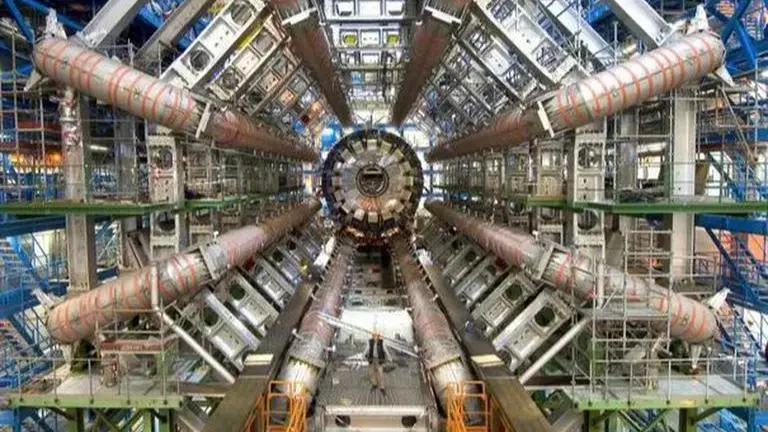Updated 26 April 2022 at 22:58 IST
CERN's Large Hadron Collider creates new record in particle acceleration after awakening
CERN's LHC was restarted for its new operating phase, called Run 3, and two protons were accelerated at an energy of 6.8 teraelectronvolts.
- Science News
- 2 min read

Just days after being activated after a three-year hiatus, the Large Hadron Collider (LHC) has already achieved a milestone on a quantum scale. Part of the European Organization for Nuclear Research (CERN) in Geneva, Switzerland, the LHC accelerated two pilot proton beams at record energy for collision. "Today the two LHC pilot beams of protons were accelerated, for the first time, to the record energy of 6.8 TeV per beam. After restarting LHC, this operation is part of the activities to recommission the machine in preparation of LHCRun3, planned for the summer of 2022", CERN revealed in a tweet.
Today the two #LHC pilot beams of protons were accelerated, for the first time, to the record energy of 6.8 TeV per beam. 🎉
— CERN (@CERN) April 25, 2022
After #restartingLHC, this operation is part of the activities to recommission the machine in preparation of #LHCRun3, planned for the summer of 2022. pic.twitter.com/8NZ6nNJSVf
How is the development significant?
This development is significant as every new milestone inside the LHC is pushing scientists closer to understanding the most mysterious subject to date- dark matter. Scientists say that dark matter and dark energy make up more than 85% of our universe but have not been decoded yet. As for the latest achievement, after the LHC was restarted for its new operating phase, called Run 3, two protons were accelerated at an energy of 6.8 teraelectronvolts (TeV).
According to Space.com, one teraelectronvolt is equivalent to one trillion electron volts and, in terms of kinetic energy, it is equal to the flight speed of a mosquito. It may seem insignificant to us but on a quantum level, this is an incredible amount of energy. Earlier, CERN had stated that the particle accelerator will reach the record energy of 13.6 TeV in the summer of 2022. Currently, the LHC has been restarted after December 2018 to confirm the presence of a fifth force of nature. To date, there are four forces of nature known to mankind- the weak and strong nuclear force, gravitational force and electromagnetic force.
First started in 2008, the LHC's biggest achievement was in 2012, when it discovered the Higgs Boson or ‘The God Particle’. The Higgs Boson, named after Edinburgh University physicist Peter Higgs, is basically a particle associated with the Higgs field. The Higgs field, on the other hand, was responsible for the weight of particles after they originated from the big bang. According to existing theory, the Higgs field is a theoretical, invisible energy field that spans the whole universe, and any particle interacting with this field gains mass.
Advertisement
Published By : Harsh Vardhan
Published On: 26 April 2022 at 22:58 IST
